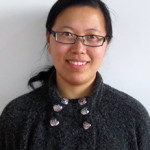Rehabilitation services, which in China include speech therapy, physical therapy, and occupational therapy, are growing fields. Over the past few years, more resources have been devoted to improving the quality of rehabilitation services for the local Chinese population. Olivia’s Place Pediatric Therapy Center has been instrumental in providing professionals to support the development of rehabilitation services in China.
This was the purpose of the trip to Kunming, China, from February 1st to 3rd, 2015. During these three days, I provided intensive training on conducting comprehensive evaluations for autism spectrum disorder to a group of therapists, doctors, and special education teachers. We discussed how doctors currently assess for and diagnose autism spectrum disorder, and engaged in some terrific discussions on how the Chinese method of evaluation and assessment differs from a more Western approach. Several assessment instruments commonly used in America were demonstrated. Cultural suitability of the instruments was also discussed. This point was particularly salient during our discussion on interpreting the results. It was a learning experience for all involved to dialogue about how behaviors that may be viewed as maladaptive or problematic may be viewed in a different light in a different culture.
On the second and third days of training, participants observed full assessments conducted in Chinese. We then held a collaborative discussion to consider the results and determine a diagnosis. In a sense, this discussion was really an interdisciplinary team approach as the participants came from different professional backgrounds. For example, having the input of physical therapists, medical doctors, and special education teachers allowed us to review and consider the client from multiple therapeutic perspectives and generated several lively discussions.
Finally, it was fascinating to discuss pertinent recommendations. Many of the recommendations that would be appropriate in a Western country cannot be implemented in China. Other recommendations are simply not culturally relevant. We worked together as a team to identify more culturally relevant recommendations and to consider how to creatively adapt good recommendations to the Chinese culture.
One of the main takeaways is that conducting evaluations and assessments for autism spectrum disorder is a culturally-sensitive endeavor. As such, it becomes extremely important for clinicians to have a thorough understanding of the client’s cultural and family background, to be hesitant in pathologizing behaviors, and to work collaboratively with local therapists and medical professionals to validate diagnoses and recommendations. Utilizing a collaborative approach allows the best of both Western and Eastern worlds to be combined to ensure treatment is in the best interest of the client.
Alice Fok-Trela, PsyD, is a registered clinical psychologist from Canada. She holds PsyD and Masters degrees in Clinical Psychology from Azusa Pacific University in California, and a BA in Business Administration from the Richard Ivey School of Business at the University of Western Ontario, Canada. Dr. Fok-Trela has worked in a variety of settings including pediatric therapy centers, schools, community counseling centers, and hospitals in Canada and the U.S. She has specific training in assessing and treating children with severe emotional and behavioral disorders. One of her special interests is working with cross-cultural issues, including immigrants and expatriates. Language: English, Cantonese, Mandarin





